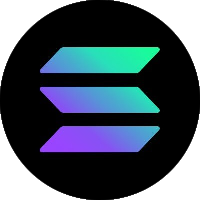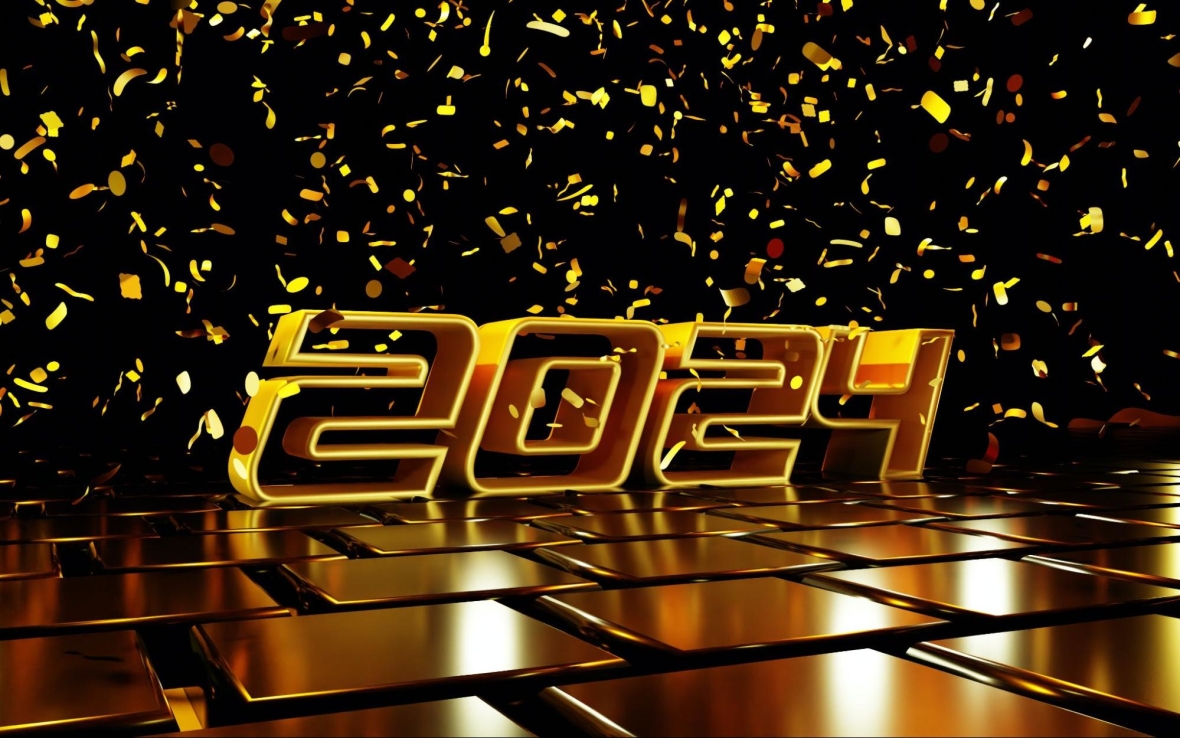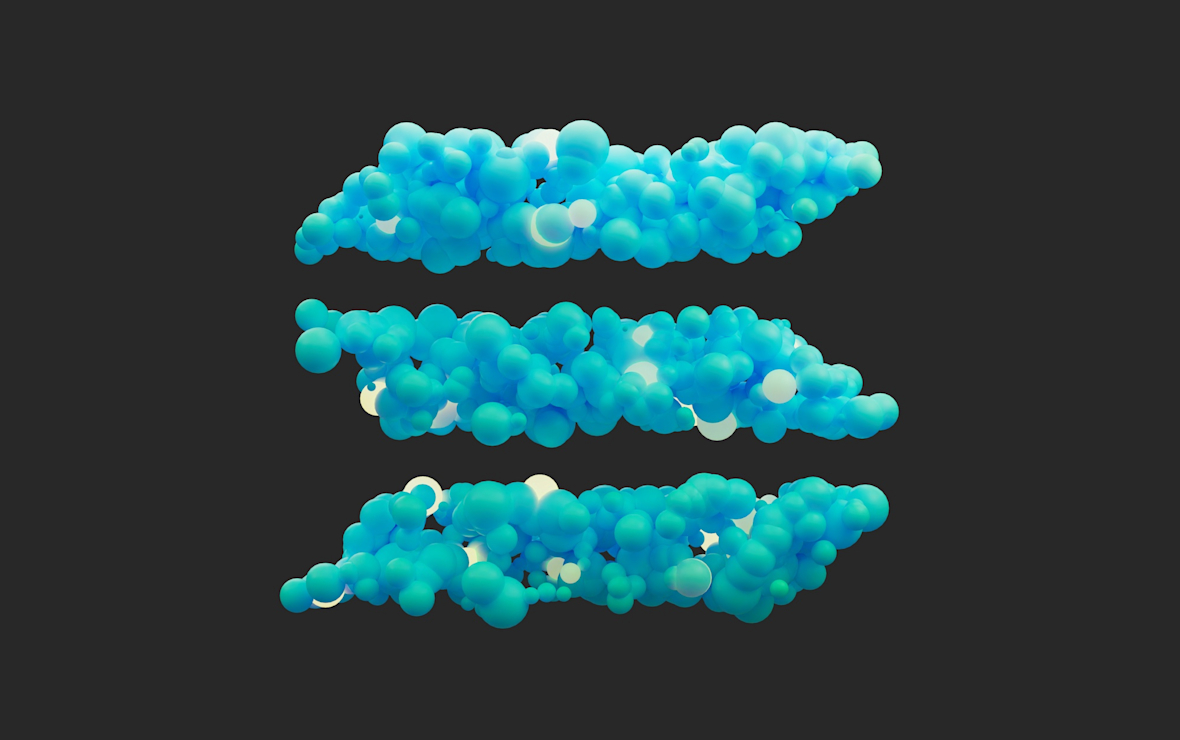Coinbase
How to Buy Solana
Good news! You can buy Solana on Coinbase's centralized exchange. We've included detailed instructions to make it easier for you to buy Solana.
Read more



Create a Coinbase account to buy and sell Solana on the most secure crypto exchange.
Solana is a decentralized computing platform that uses SOL to pay for transactions. Solana aims to improve blockchain scalability by using a combination of proof of stake consensus and so-called proof of history. As a result, Solana claims to be able to support 50,000 transactions per second without sacrificing decentralization.
Launched in March 2020 by the Solana Foundation, based in Geneva, Switzerland, Solana is a crypto-computing platform that aims to achieve high transaction speeds without sacrificing decentralization. It seeks to improve scalability through a different approach in the blockchain industry, combining a proof-of-history (PoH) consensus with the blockchain's underlying proof-of-stake (PoS) consensus. This approach has attracted interest from a diverse range of traders, from small-scale individuals to institutional entities. Solana claims it can process around 50,000 transactions per second. Like Ethereum, Solana is both a cryptocurrency and a flexible platform for running decentralized apps (dapps) or minting NFTs, with its cryptocurrency (SOL) available to buy and sell via exchanges like Coinbase.
Solana operates using a combination of proof-of-history (PoH) and proof-of-stake (PoS) consensus mechanisms. The proof-of-history component is the main element of the Solana protocol, responsible for the majority of transaction processing. PoH records successful operations and the time elapsed between them, ensuring the trustless nature of the blockchain. The proof-of-stake consensus acts as a monitoring tool for the PoH processes, validating each sequence of blocks it produces. This combination of two consensus mechanisms makes Solana a different approach in the blockchain industry. Solana's protocol is designed to serve both small-time users and enterprise customers alike, with a commitment to low transaction costs while still ensuring scalability and fast processing.
Solana's primary use case is to facilitate the creation of decentralized applications (DApps), with a particular focus on decentralized finance (DeFi) solutions. Its different approach in the blockchain industry allows for significantly decreased validation times for both transaction and smart contract execution. This has attracted a lot of interest, particularly from institutional entities. Solana's protocol is designed to serve both small-time users and enterprise customers alike, aiming to make decentralized finance accessible on a larger scale.
The idea and initial work on Solana began in 2017, but it was officially launched in March 2020 by the Solana Foundation, headquartered in Geneva, Switzerland. The most important person behind Solana is Anatoly Yakovenko, whose professional career started at Qualcomm, and who teamed up with his Qualcomm colleague Greg Fitzgerald to found a project called Solana Labs. Attracting several more former Qualcomm colleagues in the process, the Solana protocol and SOL token were released to the public in 2020.
When Bitcoin was invented more than a decade ago, it solved a tricky problem: how to make it possible for strangers anywhere in the world to make financial transactions over the internet without financial intermediaries and payment processors like Visa or Mastercard assisting the transaction. The technology that makes decentralized transactions possible — and which created the universe of cryptocurrencies we now know — is called a blockchain. But blockchains previously had one major downside compared to centralized networks like credit-card companies: they're slower. Bitcoin typically processes around than 7 transactions per second in 2023, compared to tens of thousands for Visa's network. Solana is one of many new crypto solutions aiming to make crypto networks faster and more scalable. It uses a suite of clever technologies, including a novel mechanism called "proof of history."
The computers that secure the network are called validators. Participants stake their own SOL to become a validator in exchange for a chance at earning SOL and a cut of fees. (Becoming a validator also requires a fairly high level of technical know-how.) SOL also serves as a "governance token," meaning that holders are also able to vote on future upgrades and governance proposals submitted by the Solana community.
Like Ethereum, Solana is a computing platform that can interact with smart contracts. Smart contracts power a wide range of applications, from Non-Fungible Tokens (NFT) marketplaces and Decentralized Finance (DeFi), to games. The crypto app ecosystem on Solana supports billions of dollars worth of assets as of 2023. One reason a user might choose an app that runs on Solana is that speeds are high and congestion is low — usually resulting in lower fees than on other blockchains. There are, of course, risks associated with emerging crypto applications and technologies, from extreme volatility to the potential for undiscovered smart contract bugs to be exploited. Especially as a beginner, do your research and don't risk money you can't afford to lose.
You can buy, send, and receive Solana using various crypto exchanges and wallets, including Coinbase and Coinbase Wallet.
Yes, you can participate in staking activities with Solana. Staking Solana allows you to receive non-monetary incentives by allocating your SOL tokens to aid in the security of the Solana blockchain. You can participate by operating a blockchain validator node, delegating your stake to another validator, or participating in collective staking activities. Staking is a method of participation in the security mechanism of the Solana blockchain, with potential for non-monetary network incentives. The Solana network aims to use your tokens as collateral with the intention of facilitating smoother network validations. However, it's important to note that staking may involve potential risks such as volatility, centralization risks, slashing, and liquidity issues. Therefore, it's important to be aware of these potential risks when considering your staking method.
Solana distinguishes itself from other blockchains through its unique combination of features that aim to improve speed, scalability, and efficiency. One of its key features is the Proof of History (PoH) consensus mechanism, which allows for faster transaction processing by creating a verifiable and efficient history of events. This mechanism enables Solana to handle up to 65,000 transactions per second, enabling it to process a high number of transactions per second. Another notable feature is Solana's stateless architecture, which allows transactions to be carried out sequentially without the need to update the entire network for each transaction, reducing memory consumption and contributing to scalability. Solana is associated with minimal transaction costs. Solana's ecosystem has seen growth, with a market cap of $47.5B as of February 2024. Solana operates without relying on any layer-2 or off-chain solutions, aiming to mitigate the mass exit issue.
Solana seeks to address the scalability challenges in blockchain technology through its unique consensus mechanism, Proof-of-History (PoH), and a Proof-of-Stake (PoS) consensus algorithm. PoH introduces a historical record of all transactions before they are included in a block, which aims to allow nodes to reach consensus on the order and validity of transactions more efficiently. This approach strives to reduce the time and resources required for nodes to agree on the state of the blockchain, with the intention of achieving high throughput and low transaction costs. Solana's architecture is designed with the aim of enhancing efficiency and performance. Its unique combination of PoH, a Byzantine Fault Tolerant (BFT) consensus mechanism called Tower BFT, and a system of parallel processing is intended to ensure that the network can maintain high throughput even as the number of nodes and transactions increases. The use of Graphics Processing Units (GPUs) is intended to further enhance the network's computational capabilities. Solana's design focuses on enhancing transaction processing speed. The network is designed to handle over 50,000 transactions per second (TPS). Solana aims to offer improvements within the blockchain space, positioning itself as an alternative for projects that require quick and seamless transaction processing. The design of Solana aims to enhance user experience through quicker confirmation times, especially in applications where real-time responsiveness is a key consideration.
Solana hosts a variety of projects and decentralized applications (DApps). These include Phantom Wallet, a multichain crypto wallet, and Magic Eden, an NFT marketplace, are also built on Solana. Collab.Land, a platform specializing in tokenized memberships and engagement solutions for decentralized communities, is another project built on Solana. These projects and DApps aim to utilize Solana's capabilities to explore solutions in the cryptocurrency space.
The Solana Foundation is a non-profit organization based in Zug, Switzerland, dedicated to fostering the growth, security, and decentralization of the Solana ecosystem. It strives to enhance the censorship resistance of the Solana network. The foundation encourages new and existing validators to maintain consistent operations through its Delegation Program. It also facilitates a Server Program to help validators and RPC node operators locate their operations in data centers distributed globally. The Solana Foundation runs a Grants Program focused on funding efforts to further enhance censorship resistance on the Solana Network. It provides access to servers at adjusted rates to help bootstrap the network. The foundation's initiatives aim to support the growth of DeFi on Solana, increase the network's censorship resistance, and help decentralize the network.
Solana's security is primarily maintained through its unique consensus mechanism that combines proof-of-history (PoH) with proof-of-stake (PoS). This mechanism strives for network scalability while maintaining security. Solana's security is further reinforced by staking nodes and a 'clock' that establishes when events occur. This feature allows nodes to confirm blocks without the need to verify the entire chain beforehand, reducing consensus overhead and allowing for greater network speed and scalability. It should be noted that, like all new blockchains, Solana faces the risk of centralization due to its steep hardware requirements for running a validator node. Solana seeks to enhance its decentralization and fee structure. Additionally, Solana operates a bug bounty program that encourages security researchers to submit bug reports and receive non-monetary recognition for their contributions, contributing to the overall security of the network.
Earn free crypto after making your first purchase. Terms apply.

Sum of median estimated savings and rewards earned, per user in 2021 across multiple Coinbase programs (excluding sweepstakes). This amount includes fee waivers from Coinbase One (excluding the subscription cost), rewards from Coinbase Card, and staking rewards.
Market cap
$63.1B
Volume (24h)
$2.2B
Circulating supply
447.1M SOL
Typical hold time
146 days
Popularity
#5
All time high
$260.00
Price change (1h)
+1.56%
Price change (24h)
-1.5%
Price change (7d)
-8.1%
People who viewed Solana tend to also view the following cryptocurrencies.
Assets with the biggest change in unique page views on coinbase.com over the past 24 hours.
A selection of cryptocurrencies in the top 50 by market cap.
A selection of the most recently added cryptocurrencies.
Of all the assets on Coinbase, these 12 are the closest to Solana in market cap.
Here is a selection of spot and futures markets that people watch
A selection of other relevant cryptocurrencies
250,354 unique individuals are talking about Solana and it is ranked #2 in most mentions and activity from collected posts. In the last 24 hours, across all social media platforms, Solana has an average sentiment score of 3.1 out of 5. Finally, Solana is becoming less newsworthy, with 7 news articles published about Solana. This is a 36.36% decrease in news volume compared to yesterday.
On Twitter, people are mostly neutral about Solana. There were 7.02% of tweets with bullish sentiment compared to 2.39% of tweets with a bearish sentiment about Solana. 90.59% of tweets were neutral about Solana. These sentiments are based on 111175 tweets.
On Reddit, Solana was mentioned in 2606 Reddit posts and there were 4616 comments about Solana. On average, there were more upvotes compared to downvotes on Reddit posts and more upvotes compared to downvotes on Reddit comments.
Powered by LunarCrush
Contributors
250,354 people
Volume rank
#2
Average Sentiment
3.1 out of 5
News Articles
7
Tweet Count
111,175 people
Sentiment
7.02%
Bullish
90.59%
Neutral
2.39%
Bearish
Posts
2,606
Comments
4,616
Post Score
3,202,457
Comment Score
3,426,309
Conversion Table
SOL/CAD (Canadian Dollar)
CA$192.50
SOL/GBP (British Pound)
£112.79
SOL/JPY (Japanese Yen)
¥22,279.57
SOL/INR (Indian Rupee)
₹11,741.16
SOL/BRL (Real)
R$720.25
SOL/EUR (Euro)
€131.83
SOL/NGN (Nigerian Naira)
NGN 185,735.46
SOL/KRW (South Korean Won)
₩193,997.67
SOL/SGD (Singapore Dollar)
S$191.84
Coinbase
How to Buy Solana
Good news! You can buy Solana on Coinbase's centralized exchange. We've included detailed instructions to make it easier for you to buy Solana.
Read more

Coinbase
How to Stake Solana
Solana is currently available to stake on Coinbase’s centralized exchange, subject to locations where staking is allowed.
Read more


Staring into the cryptoball: Breaking down 9 predictions that could shape 2024
COINBASE BYTES • JAN 04, 2024

Sol cycle: Solana’s price climbed back above $200 as trade volumes surged
COINBASE BYTES • MAR 27, 2024
Learn how we collect your information by visiting our Privacy Policy.
The price of Solana has increased by 1.56% in the last hour and decreased by 1.50% in the past 24 hours. Solana’s price has also fallen by 8.10% in the past week. The current price is $140.78 per SOL with a 24-hour trading volume of $2.23B. Currently, Solana is valued at 45.86% below its all time high of $260.00. This all-time high was the highest price paid for Solana since its launch.
The current circulating supply of Solana is 447,148,852.526 SOL which means that Solana has as total market cap of 447,148,852.526.
We update our Solana to USD currency in real-time. Get the live price of Solana on Coinbase.
The current market cap of Solana is $63.10B. A high market cap implies that the asset is highly valued by the market.
The all-time high of Solana is $260.00. This all-time high is highest price paid for Solana since it was launched.
Over the last 24 hours, the trading volume of Solana is $2.23B.
Assets that have a similar market cap to Solana include Bitcoin, Ethereum, Tether, and many others. To see a full list, see our comparable market cap assets.
The current circulating supply of Solana is 447 million.
The median time that Coinbase customers hold Solana before selling it or sending it to another account or address is 146 days.
Solana ranks 9 among tradable assets on Coinbase. Popularity is currently based on relative market cap.
Currently, 96% of Coinbase users are buying Solana. In other words, 96% of Coinbase customers have increased their net position in Solana over the past 24 hours through trading.
Yes, Solana is currently available on Coinbase’s centralized exchange. For more detailed instructions, check out our helpful how to buy Solana guide.
Navigate the world of Ethereum Name Service (ENS) profiles. Connect, learn, and engage with the web3 community on profile.coinbase.com. Check out some of the most popular ENS profiles below.
Certain content has been prepared by third parties not affiliated with Coinbase Inc. or any of its affiliates and Coinbase is not responsible for such content. Coinbase is not liable for any errors or delays in content, or for any actions taken in reliance on any content. Information is provided for informational purposes only and is not investment advice. This is not a recommendation to buy or sell a particular digital asset or to employ a particular investment strategy. Coinbase makes no representation on the accuracy, suitability, or validity of any information provided or for a particular asset. Prices shown are for illustrative purposes only. Actual cryptocurrency prices and associated stats may vary. Data presented may reflect assets traded on Coinbase’s exchange and select other cryptocurrency exchanges.